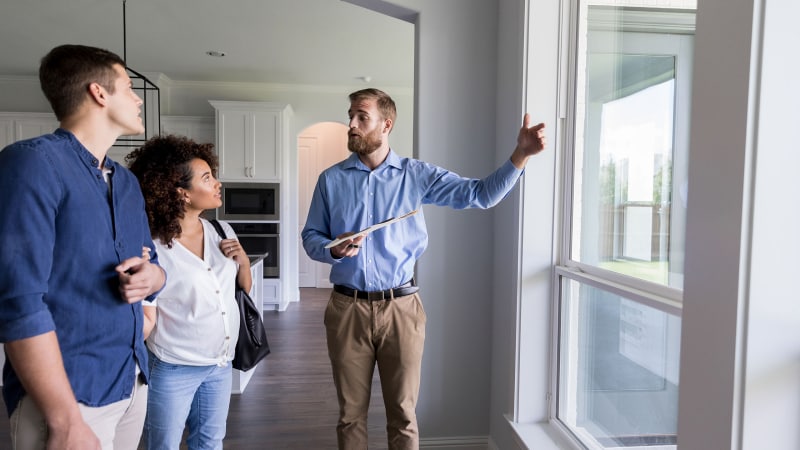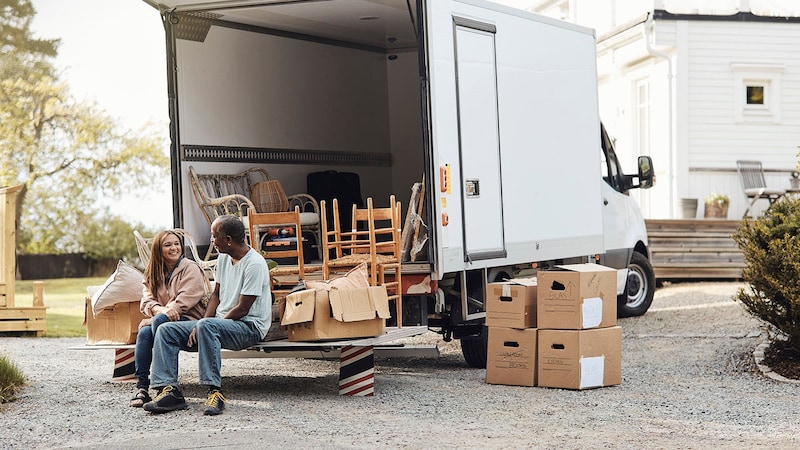How buying a house changes your life

If you've just purchased your first home, congratulations are in order. It’s exciting, but it can also be intimidating since it's likely one of the most expensive purchases you'll ever make and puts a variety of new responsibilities on your plate.
Homeownership is a new beginning, so take a deep breath and prepare to embark on your new adventure.
What changes when you buy a home?
Homeownership provides you with a wealth of freedom and responsibilities. In fact, practically everything changes when you buy a home. While your monthly house payment may be similar to your previous rental payments, you're also responsible for upkeep and home insurance. This means you're likely to be more financially responsible. Additionally, you're probably more invested in your home's future and the potential for upgrades, so frivolous spending might be a thing of the past.
These responsibilities are countered with the freedom to update your home as you see fit and the knowledge that the beginning of the month won't bring higher rental costs. Homeownership has both pros and cons, but the benefits likely outweigh the downfalls.
The joys and challenges of homeownership
If you haven't committed to your home purchase, it's a good idea to get a better understanding of the most common benefits and potential risks of homeownership.
Advantages of homeownership
- As you make payments, you gain equity. This means you'll eventually be able to sell the home for more than you owe.
- You can make changes to your home and the surrounding property.
- A home can be a good long-term investment.
- If you have a fixed-rate mortgage, you’ll have stable monthly payments.
- Mortgage interest, property taxes, and some closing costs may be subject to federal tax deductions.
Disadvantages of homeownership
- You can't call the landlord when emergencies arise.
- Maintenance is inevitable, and you're responsible for the costs.
- Upfront costs of buying, like the down payment closing costs, may leave you with little spending money.
- You probably won't be in a position to easily pick up and move if an attractive job offer or other opportunity comes along.
- If property values fall, you might lose money if you sell.
- While a home is typically a good investment, it can take months or even years to sell a home.
Things to consider before buying a home
Many people consider buying a home a rite of passage. Still, it's important to understand the responsibilities involved with homeownership and whether you're prepared to buy now or if you should wait. If the question "Should I buy a house now?" leaves you feeling unsure, consider these points before making a decision.
- Cost of Ownership. Just because you're eligible for a home loan doesn't mean you're prepared to pay a mortgage. It's essential to sit down and determine exactly how much money you're comfortable spending each month.
- Commitment. Renting means you have more flexibility to pick up and move quickly if an opportunity arises. While you could always sell your home, sales don't always happen quickly.
- Down Payment. There are many great options available to help potential homebuyers purchase a home with a lower down payment. However, a small down payment means higher monthly mortgage payments. Taking the time to save up for a down payment can put you on more stable financial ground when you purchase your first home.
New homeowners checklist
Buying a home is a whirlwind of activity. It can be easy to forget all the things that go along with the final details of closing and moving in. When you've closed, it's time to get to work preparing your new home for your unique needs. Use this handy checklist to complete the tasks you need to address.
1. Complete these essential tasks immediately
Completing some tasks before and immediately after moving can help you avoid problems in the future. Make sure you complete these essential tasks as soon as possible.
- Complete repairs. If you purchased a home that needs repairs, it's best to have the necessary work done before you move in. Even if you're doing the work yourself, it’s much easier without furniture in the home.
- Clean. If you don't have time to do a full-scale cleaning before you move in, book a professional cleaning service. A thorough cleaning of the bathrooms, carpets, floors, cabinets and appliances allows you to move into a spotless home.
- Set up utilities. Formally changing your address and setting up your utilities is a task you need to complete before moving day. You don't want to spend the first few days in your home with no heat or running water.
- Take some time off. Take some time to get your new home set up without the demands of daily life.
- Change the locks. No matter how much you like and trust the previous owners, you have no idea how many keys have been made or lost over the years.
- Find your shut-off valves. You cannot be over-prepared for an emergency. Being able to immediately shut off water, gas or electricity to your home could help prevent serious damage. Learn where all your main shut-off valves are located, as well as valves for small localized fixtures or appliances.
- Plan for emergencies. Create a list of local emergency numbers, as well as reliable repair services like plumbers and electricians in the area.
2. Complete these tasks to help lower the cost of homeownership
As a new homeowner, you're facing many expenses that you haven't been responsible for in the past. Completing these tasks can help you save money on home energy and maintenance costs.
- Lower the temperature on your hot water heater. Since most people never use water hotter than 120 degrees, it makes sense to save energy costs by lowering your water heater's temperature.
- Check the insulation in the attic. If your attic is unfinished, you should be able to see insulation between the rafters. If your insulation is thin or damaged, it's time to replace it. If you decide to tackle this job yourself, it's essential to learn how much insulation is required in your area.
- Install ceiling fans. Air circulation in each room allows you to take some of the pressure off of your heating and cooling system. Remember to use your reversal fan switch so air blows down on you during the summer and pulls up in the winter.
- Insulate your water pipes. Exposed water pipes lose heat as water travels from the water heater to your faucets. Wrapping them in pipe insulation can help your water heater save energy.
- Inspect and clean your vents. Inspect all vents to make sure they're clear of dust and other obstructions. Your heating and cooling system is forced to work harder when vents are blocked.
- Air seal your home. Reducing drafts in your home can help you save on your energy billsOpens overlay. Check for and repair leaks around windows, doors and electric outlets.
- Mark and keep an eye on basement cracks. Settling of the home’s foundation leads to cracks in the basement wall. These cracks may be dangerous, especially if they're growing. Place masking tape over the cracks in your basement walls and check every few months to ensure the cracks don't outgrow the tape. Calling a specialist before foundation cracks get out of hand could save you a considerable amount of money.
- Plant shade trees. Planting shade trees near your home provides a natural cooling source in summer and allows sun to reach your home in the winter. But make sure you don’t plant them too close as the growing roots could damage to your foundation or utility lines down the road.
- Create a home maintenance checklist. Since home maintenance and repairs are now your responsibility, create a list to keep things in shape.
Buying a home is an exciting, but it’s also a big responsibility. Understanding the purchase process and your responsibilities can help you prepare so you can enjoy your new home. To learn more about homeownership and the options for purchasing your first home, talk to one of our home lending advisors today.



